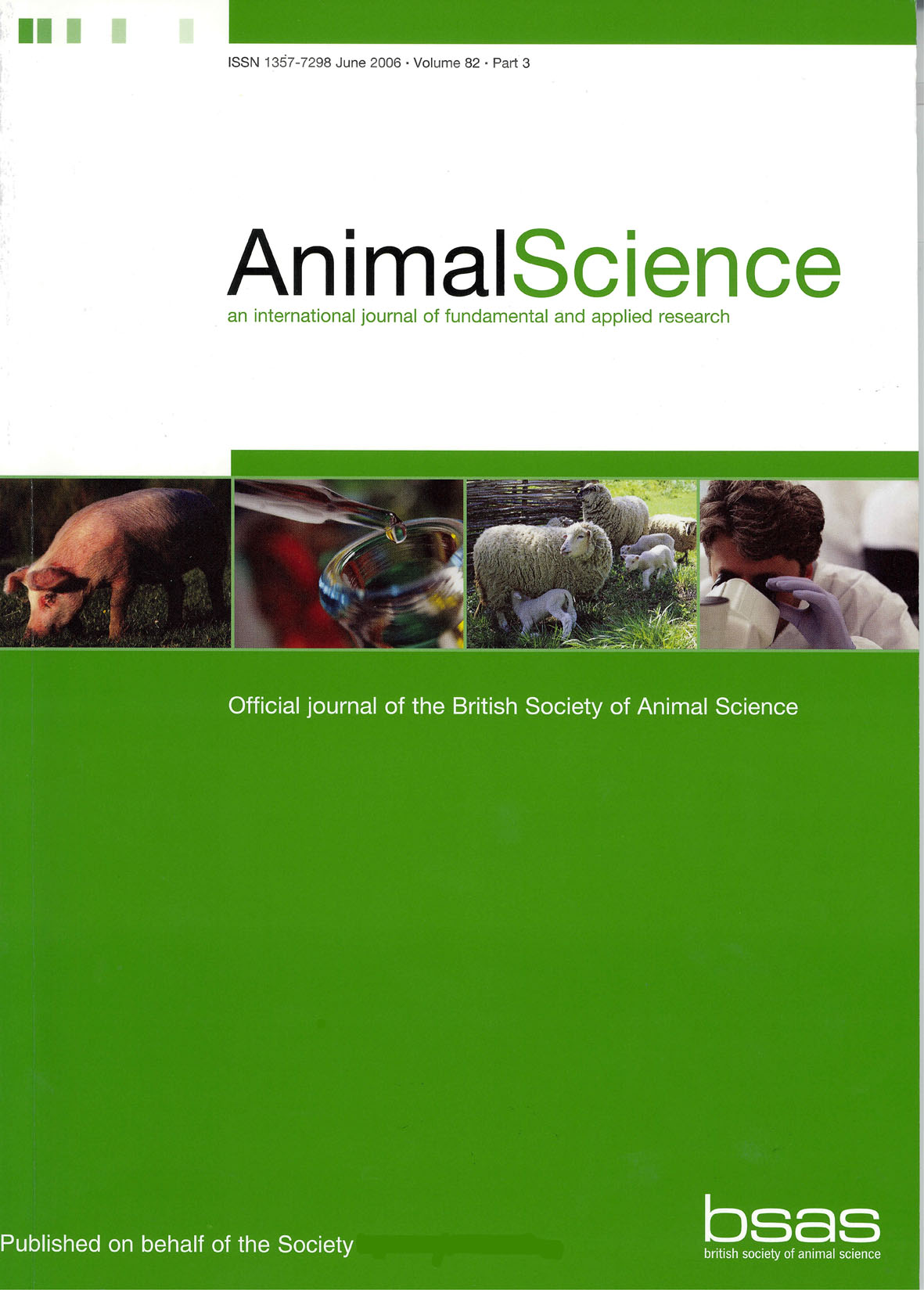Article contents
The effects of reducing the water intake of lactating dairy cows by 40% for 3 weeks
Published online by Cambridge University Press: 02 September 2010
Abstract
1. The voluntary water intakes of eight housed lactating cows were measured. Four of them were subsequently deprived of 40% of this water intake for three weeks. Feed consumption, milk yield and quality, water, Na and K balances, and serum and urine osmolalities were measured. The cows were weighed weekly and their pulse, respiration and rumination rates and rectal temperatures were measured daily.
2. In deprived cows there was a decrease in the mean intake of dry matter by 24% and in milk yield by 16%. These changes were apparent after 24 h, but subsequently there were no further changes. Faecal water was reduced significantly and the percentage faecal dry matter increased significantly. Urine osmolality increased but the reduction in urine volume was not statistically significant.
3. Concentrations of urea and Na in serum and serum osmolality were significantly higher in deprived cows throughout the experimental period and increased slightly but significantly each day from the time the deprived animals were last offered water to appetite.
4. The deprived cows lost weight during the 1st week of deprivation but showed no further change until rehydration, after which normal body weight was regained within 4 days. The deprived cows had consistently lower mean rates of respiration and rumination than the control cows throughout the period of deprivation but they showed no signs of distress.
- Type
- Research Article
- Information
- Copyright
- Copyright © British Society of Animal Science 1978
References
REFERENCES
- 14
- Cited by


